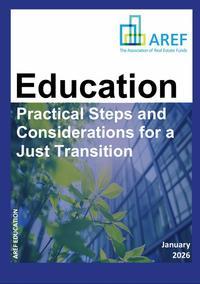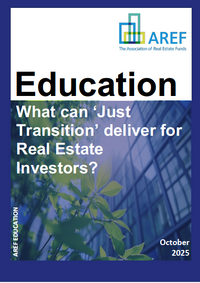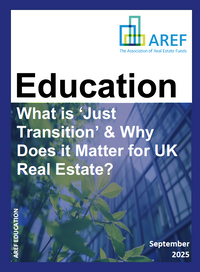The AREF ESG & II Committee is delighted to launch a series of three articles for our members exploring the concept of a 'Just Transition' within the context of UK real estate.
Climate change is an urgent challenge, with those most affected by its impacts often having contributed the least to its causation, frequently due to poverty. This situation has led to the concept of a 'Just Transition', which acknowledges that achieving net-zero emissions alone is not sufficient. To be truly effective, it is necessary to address the socio-economic impacts of transitioning to net-zero, such as potential job losses and rising energy prices.
For UK real estate investment managers controlling £360 billion of Assets Under Management committed to net-zero targets, this presents both a challenge and an opportunity. The question is not just whether we can decarbonise our portfolios, but whether we can do so in a way that protects and empowers the communities where we invest.
Article 3 - Practical Steps and Considerations for a Just Transition
This third and final article tackles practical implementation - how investors can actually integrate Just Transition principles into their operations.
Download Article 3 by clicking here or click the image below.

Article 2 - What can 'Just Transition' deliver for Real Estate Investors?
This second article explores the potential benefits of adopting a Just Transition approach. It also considers the challenges of implementation for the real estate industry, alongside future opportunities that overcoming these challenges can create. The first article defined a Just Transition for UK real estate and explained why it matters to the real estate industry. Both articles can be accessed below.
Download Article 2 by clicking here or the image below.

Article 1 - What is a ‘Just Transition’ and Why Does it Matter for UK Real Estate?
This article defines a Just Transition for UK real estate and explains why it matters now to us as an industry.
Download Article 1 by clicking here or click the image below.

Enquiries
For any enquiries relating to this, please email us in the first instance at [email protected] and we will forward your enquiry onto the authors/working group.

